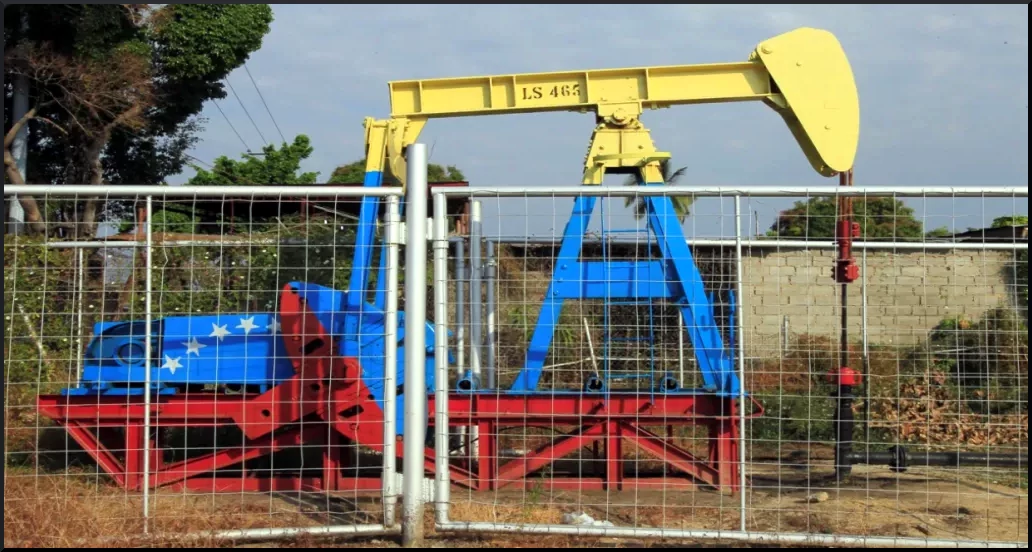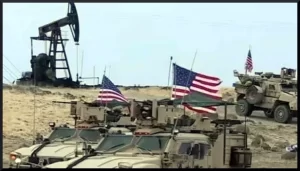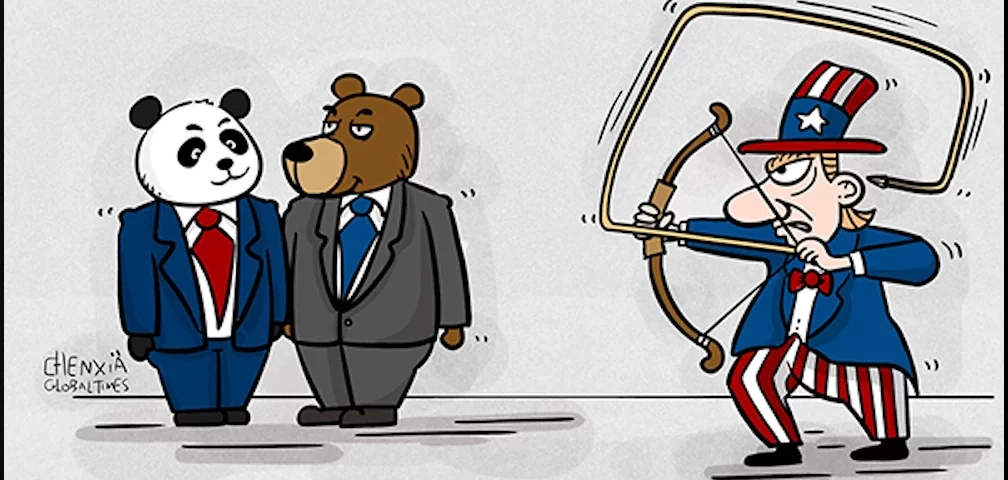by Daniel Kovalik, published on Covert Action Magazine, March 24, 2022
Russia had drawn a line in the sand and, once violated, defied Washington by acting to defend its interests. A lot of countries support Russia, and Washington is powerless to stop it.
If you are like me, you have been glued to the news about the Russian military operation in Ukraine and its implications for the world. Obviously, we cannot know about all of these implications at this point, and we may not for some time to come. Indeed, this recalls to mind Nixon’s query to Zhou Enlai in 1972 about his thoughts on the French Revolution. Zhou, with his long-term view of the world, responded simply, “too soon to say.”
However, we are seeing some developments emerge very quickly which may tell us where all of this is heading. First, in response to the U.S.’s extreme sanctions on Russia, including its removal of the Russian Central Bank from the SWIFT banking system, Russia and China have quickly pivoted to transferring money through other means and to trading on the Chinese Yuan.
And now, the U.S.’s long-time ally Saudi Arabia is also considering doing the same.

Then, we see U.S. delegations going hat in hand to both Venezuela and Iran—long-time targets of U.S. regime-change attempts and sanctions—seeking oil from these countries to try to offset the net reduction of oil and natural gas supplies caused by the war in Ukraine and the sanctions leveled in response to it. The President of Venezuela, Nicolás Maduro, whom the U.S. does not even recognize as the elected leader of Venezuela, must have been delighted to have the U.S. come groveling for help only to turn it away empty-handed.

Similarly, as long-time member of the Communist Party of the Russian Federation (CPRF) and former Russian parliamentarian Vyacheslav Tetekin explains,
“the claims about global nature of boycott of Russia are false. BRICS countries (Brazil, India, China and South Africa) constituting 43% of the world population did not support sanctions. China is the 1st and India—third biggest economies of the world. Sanctions were not supported by Asia (excluding Japan and South Korea with their U.S. military bases), by the Middle East, by the largest countries of Latin America and by the majority of the African nations.”
Tetekin, stating the important point that, while the current Russian leadership is not one he supports and is indeed in opposition to, he does agree with its decision to take action in Ukraine to defend the people of the Donbass—people the CPRF has actively supported, Tetekin explains, for eight years with volunteer fighters and humanitarian aid—and to defeat the neo-Nazi forces there.
As Tetekin writes,
“[f]or 30 years I have been one of the most active critics of the domestic and foreign policy of the Russian elite. In its class character, the oligarchic-bureaucratic power in Russia is not much different from the power in Ukraine (except without fascism and full U.S. control). However, in those unfortunately rare cases when the leaders of Russia pursue a line that meets the historical interests of the country and the people, the principle of ‘automatic’ criticism is hardly appropriate.”
It is important to note that it was the CPRF which originally submitted the resolution in January of this year to the Russian Duma which requested that President Putin recognize Donetsk and Lugansk—a resolution which the Duma ultimately approved and which Putin ultimately acted upon in February.
Meanwhile, a number of important world leaders have been very clear that they firmly put the blame upon the U.S. and NATO for what has happened in Ukraine.
For example, former Bolivian President Evo Morales—victim of a U.S.-backed coup in 2019—denounced the “crimes against humanity” committed by Ukraine since 2014, and said that
Morales called for an “international mobilization to stop the interventionist expansionism of NATO and the U.S.,” which he referred to as “the main enemy of humanity, threaten[ing] life, peace, and the economy through its expansionist, interventionist and warmongering policy.”
Morales’s statement comes as top-secret documents have been revealed proposing NATO expansion into Latin America, both through the British Mount Pleasant base in the Falkland Islands (islands which the UK forcibly took from Argentina in 1982) and through Colombia, which has been an “extra-continental partner since 2017 and . . . was already used to train Bolivian Air Force officers.”
And, of course, the U.S. and Colombia held joint naval exercises off the coast of Colombia—exercises which included a U.S. nuclear submarine—within days of the Russian invasion of Ukraine. According to Colombian Defense Minister Diego Milano at the time, “[t]his exercise is carried out within the scope of NATO, in the case of Colombia as a global partner country, it seeks to adapt the best international standards in the development of maritime operations.”


U.S. imperialism has turned a huge part of the world against the U.S. [Source: scfr.ir]
International law experts, such as Professor Francis A. Boyle, have commented that Russia was acting within the self-defense provision of Article 51 of the UN Charter through its Ukraine operations given the real and imminent threat that Ukraine forces represented to Russia and to the ethnic Russians living in Ukraine (many of whom are Russian citizens). (Boyle also argues, by the way, that the U.S.’s biolabs in Ukraine are definitely bio-weapons facilities, and he should know given that he helped draft the biological weapons ban Convention.) In any case, whether one agrees with Boyle or not, what is true is that Russia certainly has a better case under international law for its actions in Ukraine than the U.S. has had for invading countries halfway around the world which presented absolutely no threat to the United States.
And even more to the point of the present discussion, Russia’s operations in Ukraine, understood as a strike against NATO aggression and encirclement, signals the end of the U.S. and NATO’s ability to act unilaterally around the world at will and without any repercussions. Russia had drawn a line in the sand, and once crossed by the West, it acted militarily to defend its interests.
This is something that no country has dared to do since the end of the Cold War, and this marks the end of the “New World Order”—a doctrine pursuant to which the U.S. assumed to itself the role of master of the world—which President George H.W. Bush announced as the East Bloc was collapsing and which has been in place till now. Not surprisingly, most of the world never liked the terms of the “New World Order” to begin with, were in fact victimized under that regime and certainly are not going to do anything now to stop it from crumbling.
Daniel Kovalik is an American human rights, labor rights lawyer and peace activist. He has contributed articles to CounterPunch, The Huffington Post and TeleSUR. He teaches International Human Rights at the University of Pittsburgh School of Law.
